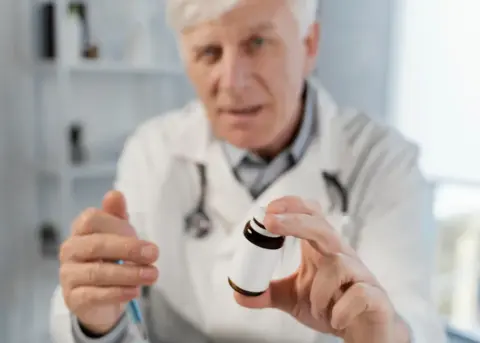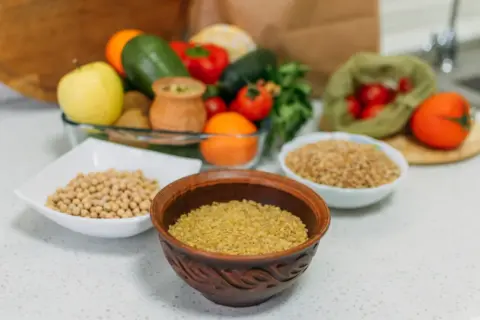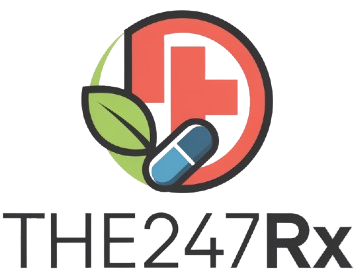 So, your doctor mentioned Gemfos and now you’re looking it up before popping that first pill. If you’re already dealing with osteoporosis or just trying to keep your bones from turning into fragile sticks, getting to know Gemfos can make a big difference.
So, your doctor mentioned Gemfos and now you’re looking it up before popping that first pill. If you’re already dealing with osteoporosis or just trying to keep your bones from turning into fragile sticks, getting to know Gemfos can make a big difference.
We’re going to lay it all out:
- What it is
- How it works
- How to take it right
- How it compares next to other meds
- Simple, straight talk. No complex lectures here so stick around.
Meet Gemfos
Gemfos is the brand name for risedronate. If that sounds like a mouthful, don’t worry, we’ll take it slow. It’s a type of drug called a bisphosphonate (fancy name, simple goal: stop your bones from falling apart). It slows down bone breakdown and gives your bones a chance to hold onto their strength or even gain some back.
Most folks who take it are managing osteoporosis or trying to dodge fractures in places like the hips or spine. Gemfos is often the go-to because it’s effective and, compared to other treatments, it doesn’t demand a ton of life changes. Just take it right, stick with it, and you’re already doing your bones a favor.
Risedronate can help to make your bones stronger and reduce your risk of broken bones, including hip and spinal fractures (Risedronate (risedronic acid): osteoporosis treatment).
How Gemfos gets to work
Your bones are in a constant state of remodeling, some cells build them, others break them down. In people with osteoporosis, the breakdown team (called osteoclasts) works overtime while the builders (osteoblasts) can’t keep up. Gemfos tells the osteoclasts to chill, giving your bones a chance to rebuild without crumbling.
Think of it like this: your bones are an old brick wall slowly wearing down. Gemfos doesn’t magically throw new bricks on, it just tells the demolition crew to back off so the wall doesn’t fall apart. Over time, that wall (a.k.a. your skeleton) starts holding strong again.
And yep, it’s not instant. It might take a few months before you feel or notice any changes, but stick with it. Stronger bones don’t happen overnight, but they do happen with consistency.
Taking Gemfos the proper way
Gemfos comes in tablet form, so no injections or weird routines here. Doses vary depending on what your body needs, but most people get anywhere from 5 mg to 35 mg per week. Your doctor will sort that out for you, so don’t play pharmacist at home.
A few things to keep in mind when taking it:
Take it on an empty stomach
First thing in the morning, with a full glass of water. No coffee, no food, no juice. Just plain water. Wait at least 30 minutes before you eat or drink anything else.
Stay upright
After taking it, don’t lie down or go back to bed. Stay standing or sitting for at least 30 minutes. Why? To avoid any nasty esophagus irritation.
Stick to a schedule
Whether you’re doing a daily or weekly dose, try to take it at the same time. That helps the med do its thing without weird spikes or gaps in your system.
Listen to your doc
Your doctor gave you instructions for a reason. Don’t change the dose, skip days, or double up without asking. Gemfos is effective but only if you play by the rules.
Alright, let’s talk safety
 Yes, Gemfos works but it’s not totally free from side effects. Some folks might feel:
Yes, Gemfos works but it’s not totally free from side effects. Some folks might feel:
- A bit of tummy trouble
- Mild nausea
- A scratchy feeling in the throat or chest
This usually happens if you didn’t take the tablet properly. That’s the esophagus acting up. Usually, these issues are nothing major and tend to ease up as your body gets used to it.
Now here’s the thing: not everyone’s a candidate for Gemfos. If you’ve got problems with your esophagus or serious kidney conditions, this might not be your best option. Be upfront with your doctor about your full medical history, including any other pills, supplements, or mystery herbs you’re taking. They might also set up regular bone density tests to keep tabs on how well things are working and tweak the plan if needed.
And if the side effects don’t go away, or get worse, don’t wait it out. Reach out to your healthcare provider right away. Taking Gemfos should help your bones, not cause you extra problems. You need good guidance from someone who knows your health.
Gemfos matched with other bisphosphonates
So how does Gemfos compare against other osteoporosis meds? It shares the stage with a few heavy-hitters: Fosamax (alendronate), Reclast (zoledronic acid), and Boniva (ibandronate). Each one works differently and comes with its own schedule and quirks.
Fosamax
You take it once a week or monthly, depending on the version. Been around for a while and does the job.
Reclast
That one’s a yearly IV drip. No pills, but you’ll need to visit a clinic. Boniva’s once a month, offering a kind of “middle ground” between the others.
Gemfos hits a sweet spot for many people. Weekly dosing is manageable, effective, and easy to remember. For folks who don’t want daily pills or annual infusions, Gemfos tends to fit nicely into the routine. But the right choice always depends on what works best for your body and your schedule.
Taking Gemfos is just one piece of the puzzle
If you really want to take care of your bones, it’s gotta be a full-on team effort. That means pairing your meds with smart lifestyle changes. Here’s how to double down:
Diet & nutrition
 Load up on calcium and vitamin D like:
Load up on calcium and vitamin D like:
- Dairy
- Leafy green
- Those fortified cereals that probably have more vitamins than your multivitamin
And if your food isn’t cutting it, supplements can help fill in the gaps.
Regular exercise
Bone-building isn’t just about sitting still with a pill. Try:
- Walking
- Light weightlifting
- Gardening
Basically anything that gets your body moving can help keep your bones strong. The goal here is to give your skeleton a workout too.
Healthy lifestyle choices
Still smoking? Might be time to rethink that. And those extra drinks? Better to keep it light. Both smoking and alcohol can weaken bones. Dropping bad habits goes a long way in making your treatment more effective.
Regular monitoring
Don’t skip the bone scans. These check-ups help track your progress and tell your doc whether things are headed in the right direction, or if something needs adjusting.
Additional resources and guides
Want to know more bone health or learn more about bisphosphonates like Gemfos? These are the sites worth bookmarking:
- Bone Health & Osteoporosis Foundation – This one’s a go-to. It’s packed with science-backed tips and straight-to-the-point info to help you keep your bones strong and in check.
- Osteoporosis Foundation – Need a solid starting point? This site lays it all out from prevention to day-to-day management, for anyone dealing with or trying to avoid osteoporosis.
- OrthoBullets – A favorite among health pros, this one’s great if you’re after in-depth research or want to nerd out on the orthopedic side of things (yes, that includes osteoporosis).
- The Royal Osteoporosis Society – Based in the UK but helpful no matter where you are. Offers tons of guides, support services, and real-world advice for people living with osteoporosis.
Gemfos offers a proven, simple way to slow down bone loss
And possibly rebuild what’s already weakened. A once-a-week dose? That’s not bad at all.
But don’t stop there. Eat right, move more, and cut back on stuff that messes with your bones. And talk to your doctor. That conversation matters. Bring up your health history, your meds, and your lifestyle. Let them help craft a plan that works for you, with Gemfos as part of it.
